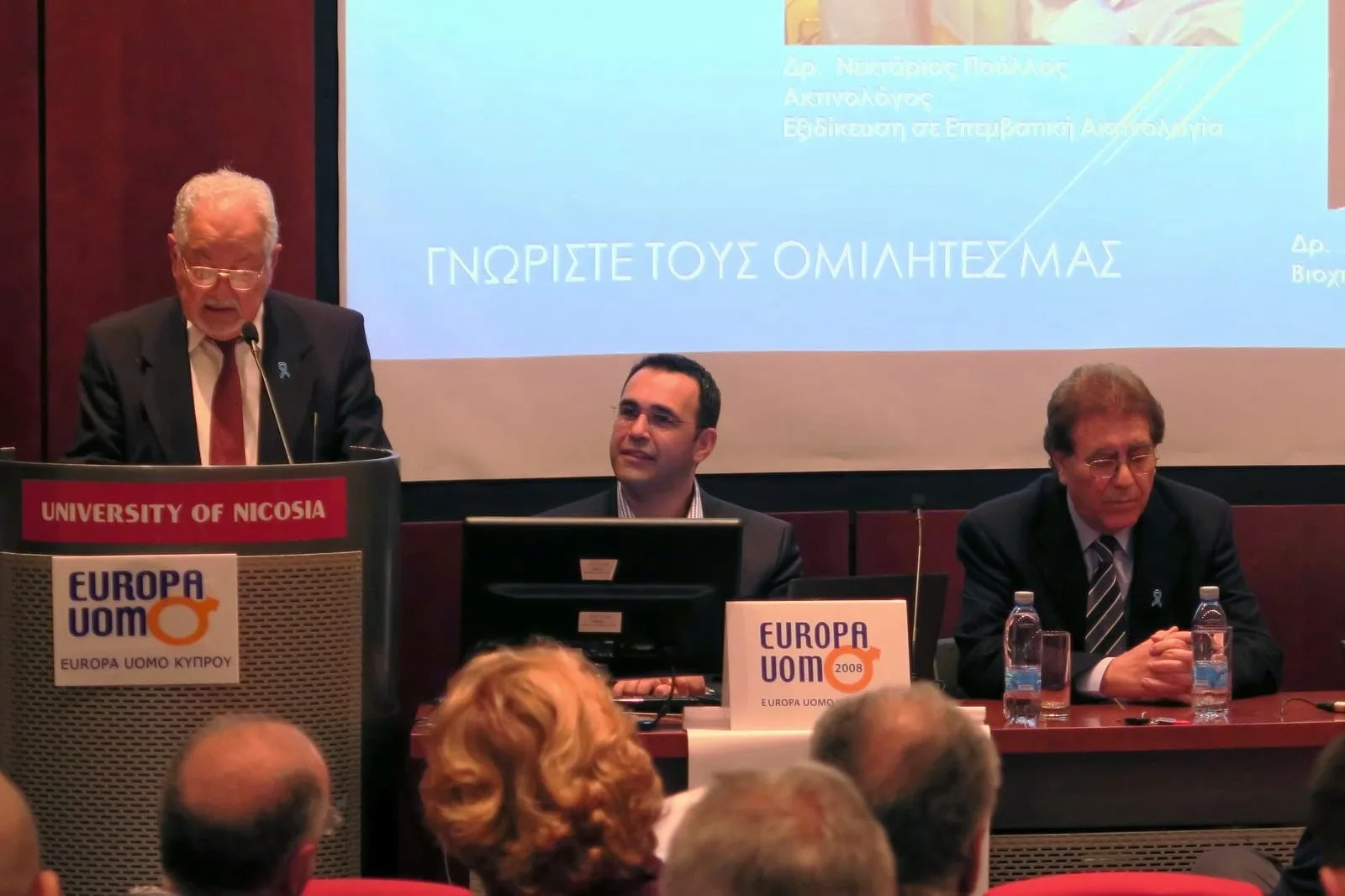by Dr Savvas G. Omorphos, Surgical Clinical Lead
Prostate cancer affects roughly 1.1 million people and kills more than 300,000 people each year, which represents about 4% of all cancer deaths worldwide. It is the second most common male cancer in the world, and will impact an estimated one in every seven men in their lifetimes.
In its early stages, prostate cancer is highly treatable, with five-year survival rates close to 100%. When the cancer has metastasized, however, the survival rate of prostate cancer falls to less than 30%, highlighting a significant need for increasing the patient’s awareness of prostate cancer detection at an early stage.
To aid this cause, the Medical School in collaboration with the Hippocrateon Private Hospital and the EUROPA UOMO, Cyprus successfully hosted a half-day seminar on Prostate Cancer as part of the Prostate Cancer Awareness Campaign on Saturday 25 February.
The seminar was well attended above the initial expectations, and the public had the opportunity to interact with the speakers by asking questions at the end of each session.
The guest speakers covered a variety of topics on prostate cancer addressing the needs of the public, aiming to improve current knowledge and outline future trends in its management. Dr Savvas C. Omorphos, Clinical Biochemist, spoke about the Prostate Specific Antigen (PSA) and its significance in both benign and malignant diseases of the prostate.
The histopathologist Dr Efrosini Iakovou delivered two excellent lectures on the prostate. The first lecture covered the prostate’s anatomy and its function in males. The second lecture thoroughly covered the types of prostate cancer and their significance in terms of prognosis.
Dr Nektarios Poullos, interventional radiologist, gave brilliant presentations on diagnostic investigations for identifying prostate cancer such as the transrectal ultrasound (TRUS) guided prostate biopsies, and new investigations for staging the disease such as computerized tomography (CT) of the prostate, multi-parametric (mpMRI) prostate, and whole-body bone scan.
Dr Savvas G Omorphos delivered a number of lectures on prostate cancer, including the importance of correct staging of the disease and its prognosis depending on the type of prostate cancer, traditional treatment methods including radical radiotherapy and brachytherapy. He went on to expand on new advances in the surgical management of prostate cancer with emphasis on the recent advent of robotic surgery.
The cherry on top of the pie was a presentation by a patient who recently went through the whole journey from diagnosis of prostate cancer to treatment with radical robotic surgery. He gave a very emotional speech outlining his experiences and his perspective having gone through the whole cycle from diagnosis to treatment offering an invaluable insight to the audience. His speech was very reassuring for the audience as it showed that there is light at the end of the tunnel, and that early diagnosis and treatment can be curative in the case of prostate cancer.
Last but not least, our esteemed colleague Professor George Marcoullis covered the subject of hormonal manipulation in cases of biochemical relapse, as well as the plethora of new medications that have recently come on the market specifically designed to halt the disease in patients whose disease has relapsed, and to expand their lifespan.
At the end of the seminar, Dr Savvas G Omorphos stated: “A challenge for this sort of seminars is to deliver a quality of lectures in an appropriate language for the audience to understand. It is of paramount importance to be able to implant concepts and ideas and for the seed to take and hold. I think this was achieved judging from the positive feedback from the audience and the expressed wish of the public for this seminar to be repeated at a later date”.

